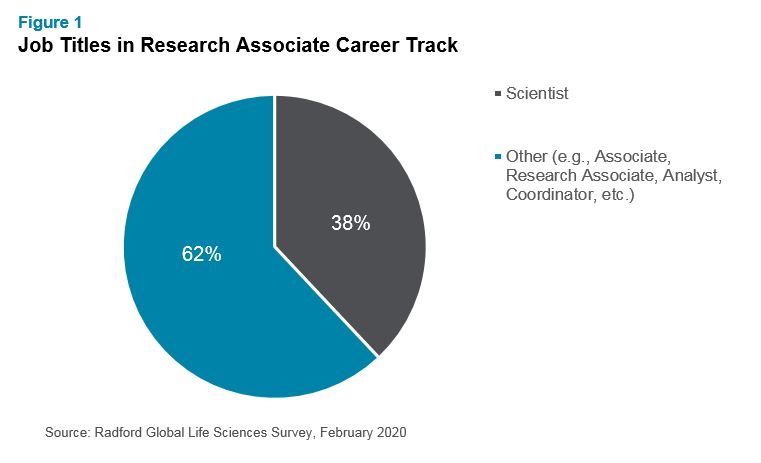A lack of control on the qualifications needed to be called a scientist is causing widespread issues throughout the life sciences sector. Here’s how to manage your job titles effectively.

In the high-growth life sciences sector, we’re seeing more companies promote or hire employees to job titles that don’t reflect their qualifications and/or the actual work they are performing that is traditionally associated with the job title. In most cases, these individuals don’t have a Ph.D. and are performing the job of a research associate, but their job title is a scientist (e.g., associate scientist, research scientist, etc.). This is creating chaos in the market on a number of fronts.
This “title creep” phenomenon is seen across the life sciences sector and driven by a couple factors. (We should also note that we have observed this trend in other sectors and for other job roles as well.) For one, high-growth, pre-commercial biotech firms may hire or promote employees without a Ph.D. to a scientist job because it’s seen as an attractive title. These companies typically have tighter cash compensation budgets and sometimes use attractive job titles as an incentive to hire employees or keep current employees motivated. On the other hand, larger life sciences companies sometimes lack control over consistent requirements for their scientist titles as the R&D function is deemphasized in favor of commercial operations (sales, marketing, operations and finance). Titles are often considered “cheap” — easy to give away and they don’t necessarily have to be given in connection with more money. This mentality, however, can be costly for organizations in the long run.
The competitive talent field within the life sciences sector is also a contributing factor to title creep. In Q4 2019, 30% of U.S.-based life sciences companies reported aggressive hiring plans, according to the Radford Global Life Sciences Survey. With more companies competing for a limited supply of skilled talent — and pre-commercial, commercial and medical device (medtech) companies increasingly hiring from the same talent pool — organizations are using every tool they can to attract and retain employees.
While awarding new job titles is often well-intentioned, there are some significant repercussions if the work being done, or the qualifications of the individual, don’t match the traditional job description. These include:
- A lack of internal control over job leveling prompting questions such as: How many scientists can I have in the organization? If employees without Ph.D.’s are scientists, then what job titles can I give my employees that do have doctorate degrees and are performing the work of a scientist?
- Difficulty recruiting externally for a job role when the job duties for the advertised role aren’t similar to the same job title at competitors
- Not accurately paying for the actual job being performed compared to the market — it’s common for companies to underpay or overpay for a job title that isn’t the right match for the job duties being performed
- Problems matching your job functions correctly in your compensation survey provider
Figure 1 shows that 38% of employees at life sciences companies in the United States have a scientist job title under the research associate career track. We consider this to be a significant percentage given that, historically, most employees under a research associate track held lower-level titles such as research associate and analyst.

Matching Job Titles Correctly
We do not recommend companies make wholesale changes to their job titles as that can cause confusion, disruption and disengagement among your workforce. Instead, companies with job titles in their organization that don’t accurately reflect the work being performed by the individual, or the expected level of experience and education, should make changes over time as they hire new employees and promote others.
We recommend following these practices to avoid title creep:
- Benchmark jobs to the qualifications and discipline of the role, not just to the job title
- Conduct a thorough review when matching jobs to your compensation survey provider to ensure your internal controls match the market and haven’t gotten off track
- Periodically review your internal job leveling and job architecture to ensure it aligns with your goals
- Ensure your career progression makes sense to employees — do they understand how to get from one point to the next?
To learn more about participating in a survey or to speak with a member of our rewards consulting group, please write to rewards-solutions@aon.com.
Related Articles